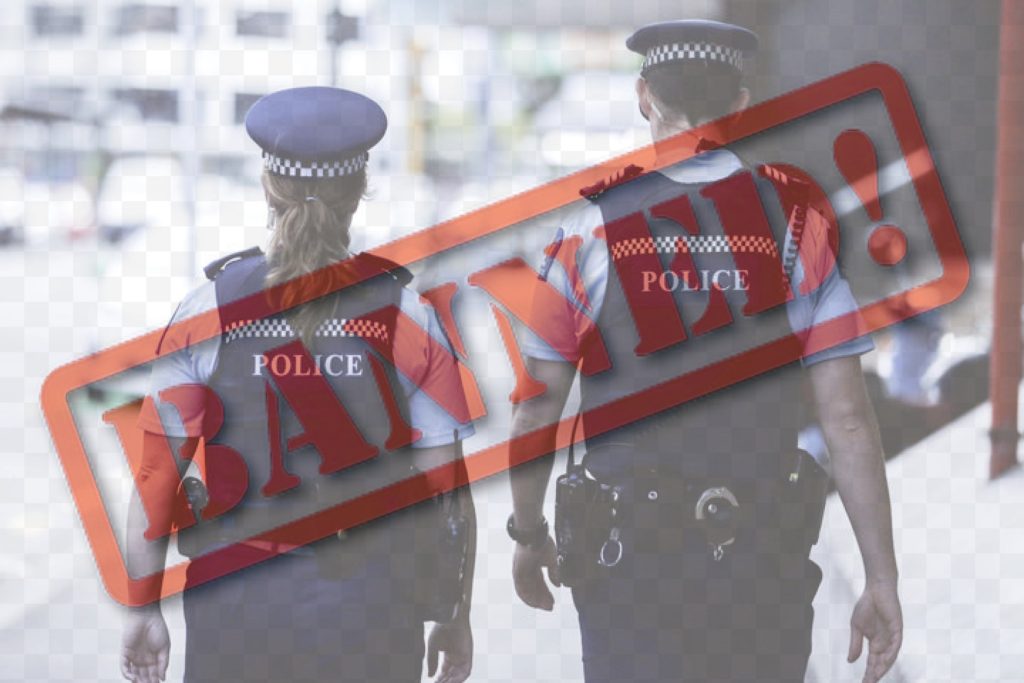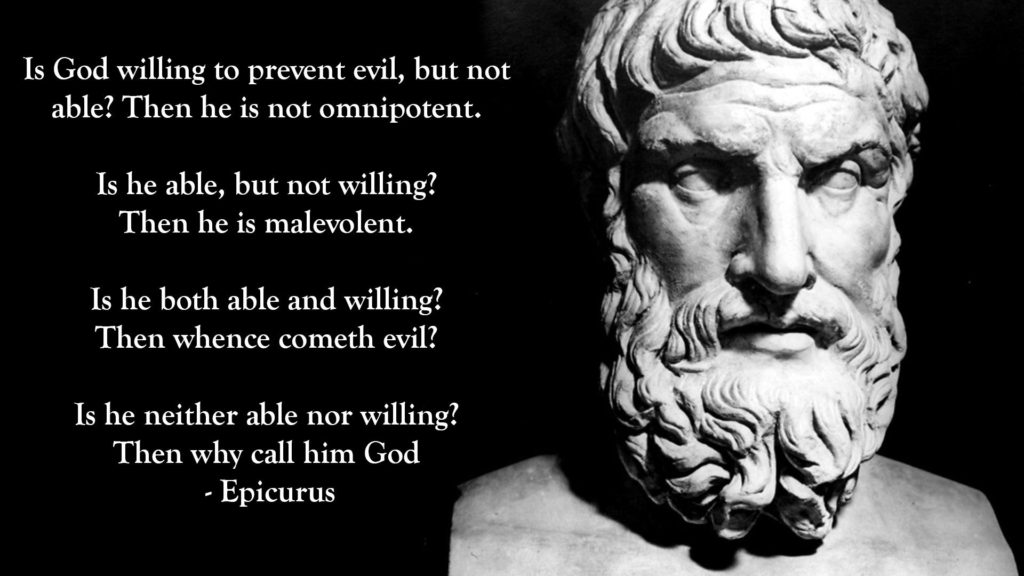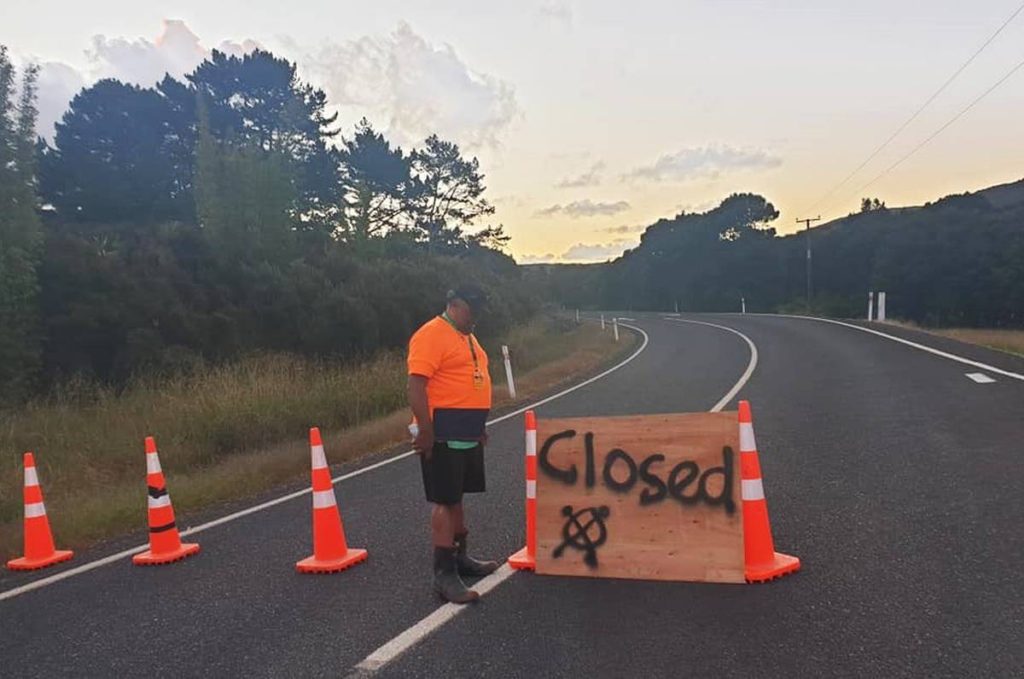
Most people never imagined that, one day, we would seriously discuss the possibility of abolishing the Police in New Zealand. It’s usually just assumed that society would fall back into savagery without a police force to keep order. Yet, here we are. This essay outlines the considerations involved in disbanding the New Zealand Police.
The first thing is to distinguish between what we’re told the Police do, and what they really do.
What we’re told is the Police enforce law and order. The story we’re given is that the Police are another government service, like road construction or defence. It’s paid for out of general taxation like any other government service, and Police officers themselves are selected for the job on the basis of demonstrating a will to serve the people.
We’re told that the Police enforce law and order for the same reason that all other government officials do their jobs: a general will to end the suffering of all citizens. The predation of criminals causes a great deal of harm, especially when it goes unopposed. Thus, the suffering of the citizens can be minimised by raising a Police force to battle criminals.
What the Police really do is protect private property.
The Police originated with the first chieftain to horde more wealth than he could realistically defend himself. In the really old days, this would mean that other people teamed up to take his wealth off him. The civilised way to defend wealth is not to defend it oneself, but to pay gullible sycophants to do it.
Today, the Police protect the investments of alcohol company shareholders by attacking anyone who produces alternatives in the form of cannabis, MDMA, LSD or other substances. They protect the investments of the importers of cheap labour by harassing anyone who speaks out against mass immigration. They protect the investments of those who hold fiat currency by kneeling on the necks of people who try to pass counterfeit bills.
If you have no investments, the Police don’t care about protecting you. If you doubt this, try being working class and reporting a crime against yourself to them. They won’t give a fuck – they’re not there to protect people like you. They’re there to protect the property of those paying their wages from people like you.
The sad reality is that the New Zealand Police are a pack of dogs that the New Zealand ruling classes sic onto their enemies when they want them destroyed. Those enemies don’t have to be causing harm to anyone – they can be peaceful cannabis users or political dissidents. The Police will destroy them anyway because they are not taking orders from the people, but from their rulers.
Most adults understand now that the New Zealand Police, like Police forces everywhere, are waging a war against the people on behalf of their paymasters. The New Zealand Police see the New Zealand people as a common enemy and, as such, co-operate and conspire against them; it’s extremely rare that one Police officer testifies against another in court.
The grim facts about human nature show that if we abolished all peacekeeping and orderkeeping services, society would soon decay into a Lord of the Flies-style permanent chimpout. However, this doesn’t mean that abolishing the Police would lead to such an outcome. It would in the short-term, if we abolished the Police immediately, but with a bit of thought we could simply deprecate them instead.
What would happen if we gradually abolished the private property-protecting force that is the New Zealand Police, and replaced them with some kind of peacekeeping and orderkeeping force that operated with the consent of the people it kept in line? A community police force whose role was to keep peace and order with the consent of the policed?
We could base such a policing model on the example of the Commando used by the Boers in the Boer Wars.
This would involve all of the able-bodied men from a particular community or neighbourhood getting together on occasion to elect officers. Perhaps for every hundred able-bodied men, ten officers are elected, and these officers choose a sergeant from among themselves.
This sergeant would then be tasked with enforcing peace and order. His rights and responsibilities would be little different to that of a regular Police constable, but with one major difference. The sergeant would serve at the pleasure of his fellow officers for the sake of the community, and could be dismissed at any time by those officers. This would be very different to today’s model, where he serves at the pleasure of the ruling class for the sake of the ruling class.
As such, our hypothetical community sergeant would not enforce laws such as cannabis prohibition, or prohibition of psychedelic sacraments. Anyone who came into the community from the outside, however, and started selling something the community did not approve of, would get dealt to. So would anyone who broke any actual law, such as thieves, rapists, thugs and murderers.
These community sergeants could come together on a town level to vote for a captain of police, who could in turn come together on a regional level to vote for a regional inspector, who could in turn come together on a national level to vote for a national superintendent. The captains, inspectors and the superintendent would have their own separate budgets with which to hire detectives and other specialists.
Should the community sergeant require, he would be able to deputise the other officers previously elected by the community’s menfolk. This would occur in cases of public disorder, or if a violent criminal needed apprehending safely.
This is entirely different to today’s model, where the ruling class appoints a caste of political administrators through a sham process called democracy, who in turn appoint lackeys to the highest ranks in the Police Force, who in turn hire arse-licking dogs willing to enforce laws against the population without their consent.
This model has led to an unaccountable paramilitary who operate more like a horde of goons than a community peacekeeping force. It’s little wonder that the world is currently wracked by protests against police brutality. The time is perfect to replace today’s top-down model with a community policing model under which officers operate with the consent of the policed.
*
If you enjoyed reading this essay, you can get a compilation of the Best VJMP Essays and Articles of 2019 from Amazon for Kindle or Amazon for CreateSpace (for international readers), or TradeMe (for Kiwis). A compilation of the Best VJMP Essays and Articles of 2018 and the Best VJMP Essays and Articles of 2017 are also available.
*
If you would like to support our work in other ways, please consider subscribing to our SubscribeStar fund. Even better, buy any one of our books!



